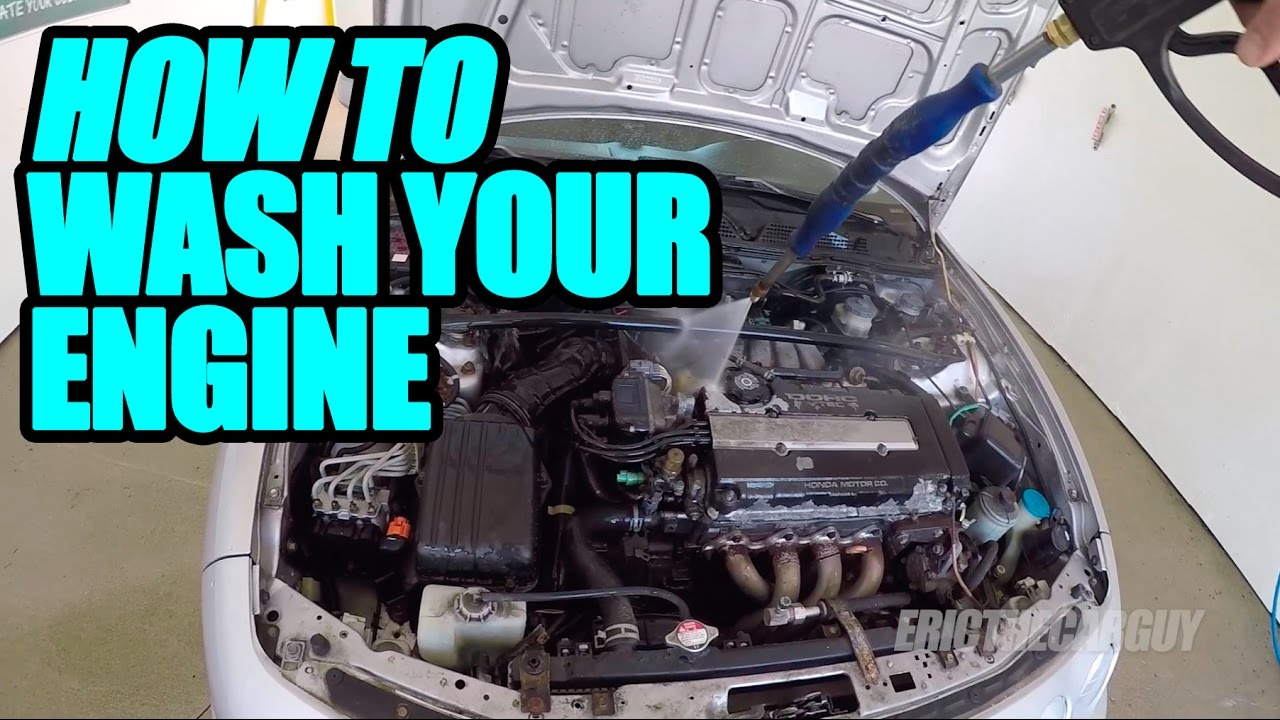How Do I Wash My Car Engine?
Materials You’ll Need:
- Engine degreaser
- Water hose
- Bucket
- Sponge or brush
- Towels
Step-by-Step Instructions:
1. Prepare the Engine:
Start by letting the engine cool down completely.
Never attempt to wash a hot engine, as water can cause serious damage to hot metal components.
Once the engine is cool, disconnect the battery to prevent any electrical damage.
Cover any sensitive electrical components, such as the alternator, distributor, and ignition coils, with plastic bags.
2. Apply Engine Degreaser:
Apply a generous amount of engine degreaser to the entire engine, avoiding the battery and electrical components.
Let the degreaser sit for the recommended time, usually around 10-15 minutes.
This will help loosen and dissolve dirt, grease, and grime.
3. Rinse the Engine:
Using a water hose with a low-pressure nozzle, thoroughly rinse the engine from top to bottom.
Be careful not to use high-pressure water, as it can damage delicate components.
Use a sponge or brush to gently scrub away any remaining dirt or debris.
4. Dry the Engine:
Use a clean towel to absorb excess water from the engine.
You can also use a leaf blower to help dry the engine faster.
Ensure all components are completely dry before reconnecting the battery.
5. Finishing Touches:
Once the engine is dry, apply a thin layer of engine protectant or sealant to help prevent future dirt and grime buildup.
Reconnect the battery and start the engine to check for any leaks or issues.
Tips:
- Use warm water for better cleaning results.
- Avoid using harsh detergents or chemicals.
- Never spray water directly into the air intake or exhaust system.
- Wash the engine regularly, especially after driving in dusty or muddy conditions.
- If the engine is heavily soiled, you may need to repeat the cleaning process.
Conclusion:
Washing your car engine regularly is essential for maintaining its performance and extending its lifespan.
By following these steps and tips, you can safely and effectively clean your engine and keep it running smoothly.
Remember to exercise caution and avoid using excessive force or harsh chemicals.





